Which of the following alkenes does not undergo rearrangement on heating with a strong acid?
(CH3)3C−CH=CH2
(CH3)2C=CH−CH2−CH3
_CHE_E06_069_Q01.png)
_CHE_E06_069_Q02.png)
To determine which alkene does not undergo rearrangement when heated with a strong acid, we need to analyze the stability of the carbocations that are formed during the reaction.
1. Identify the Alkenes:
We have two alkenes to consider. Let's denote them as:
- Alkene A: (CH3)3C=CH2 (Alkene with three methyl groups)
- Alkene B: CH3-CH=CH-CH3 (Alkene with two methyl groups)
2. Understand Carbocation Formation:
When alkenes react with strong acids, they typically undergo protonation to form carbocations. The stability of these carbocations is crucial in determining whether rearrangement will occur.
3. Analyze Alkene A:
- Upon protonation, Alkene A forms a tertiary carbocation (C+ with three alkyl groups attached).
- Tertiary carbocations are generally stable, but in this case, the presence of three methyl groups can lead to steric hindrance, making the formation of a stable carbocation less favorable.
- However, due to the nature of the structure, rearrangement is still possible.
4. Analyze Alkene B:
- Upon protonation, Alkene B forms a secondary carbocation (C+ with two alkyl groups attached).
- Secondary carbocations are more stable than primary ones but less stable than tertiary ones. However, they can also rearrange to form a more stable tertiary carbocation if possible.
- In this case, the secondary carbocation formed from Alkene B is stable enough that it does not favor rearrangement.
5. Conclusion:
- Alkene A can undergo rearrangement due to the potential formation of a stable carbocation, even if it is less favorable.
- Alkene B does not undergo rearrangement because the secondary carbocation formed is stable enough and does not lead to a more stable configuration.
Thus, Alkene B does not undergo rearrangement on heating with a strong acid.
Final Answer:
Alkene B does not undergo rearrangement when heated with a strong acid.
We have two alkenes to consider. Let's denote them as:
- Alkene A: (CH3)3C=CH2 (Alkene with three methyl groups)
- Alkene B: CH3-CH=CH-CH3 (Alkene with two methyl groups)
When alkenes react with strong acids, they typically undergo protonation to form carbocations. The stability of these carbocations is crucial in determining whether rearrangement will occur.
- Upon protonation, Alkene A forms a tertiary carbocation (C+ with three alkyl groups attached).
- Tertiary carbocations are generally stable, but in this case, the presence of three methyl groups can lead to steric hindrance, making the formation of a stable carbocation less favorable.
- However, due to the nature of the structure, rearrangement is still possible.
- Upon protonation, Alkene B forms a secondary carbocation (C+ with two alkyl groups attached).
- Secondary carbocations are more stable than primary ones but less stable than tertiary ones. However, they can also rearrange to form a more stable tertiary carbocation if possible.
- In this case, the secondary carbocation formed from Alkene B is stable enough that it does not favor rearrangement.
- Alkene A can undergo rearrangement due to the potential formation of a stable carbocation, even if it is less favorable.
- Alkene B does not undergo rearrangement because the secondary carbocation formed is stable enough and does not lead to a more stable configuration.
Alkene B does not undergo rearrangement when heated with a strong acid.
Topper's Solved these Questions
Similar Questions
Knowledge Check
- Question 1 - Select One
Which of the following alkyl halide undergo rearrangement in SN1 reaction ?
ACH3−CH3∣C∣CH3−C∣IH−CH3B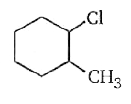 C
C DAll of these
DAll of these - Question 2 - Select One
Which of the following does not undergo Cannizzaro reaction?
ABenzaldehydeB2 - MethylpropanalCp - MethoxybenzaldehydeD2, 2 - Dimethylpropanal - Question 3 - Select One
Which of the following compounds will not rearrange on heating with AlCl3 ?
A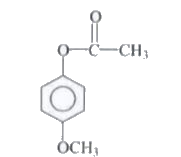 B
B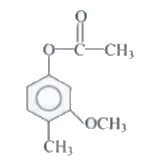 C
C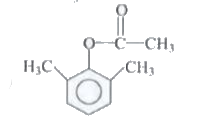 D
D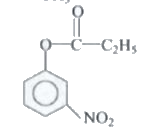
Which of the following animals does not undergo metamorphosis
View SolutionWhich of the following does not undergo diazotization reaction?
View SolutionWhich of the following does not undergo transcription of its genes?
View SolutionWhich of the following compounds cannot undergo decarboxylation on heating?
View SolutionWhich of the following alcohols undergo rearrangement during dehydration reaction ?
View Solution

